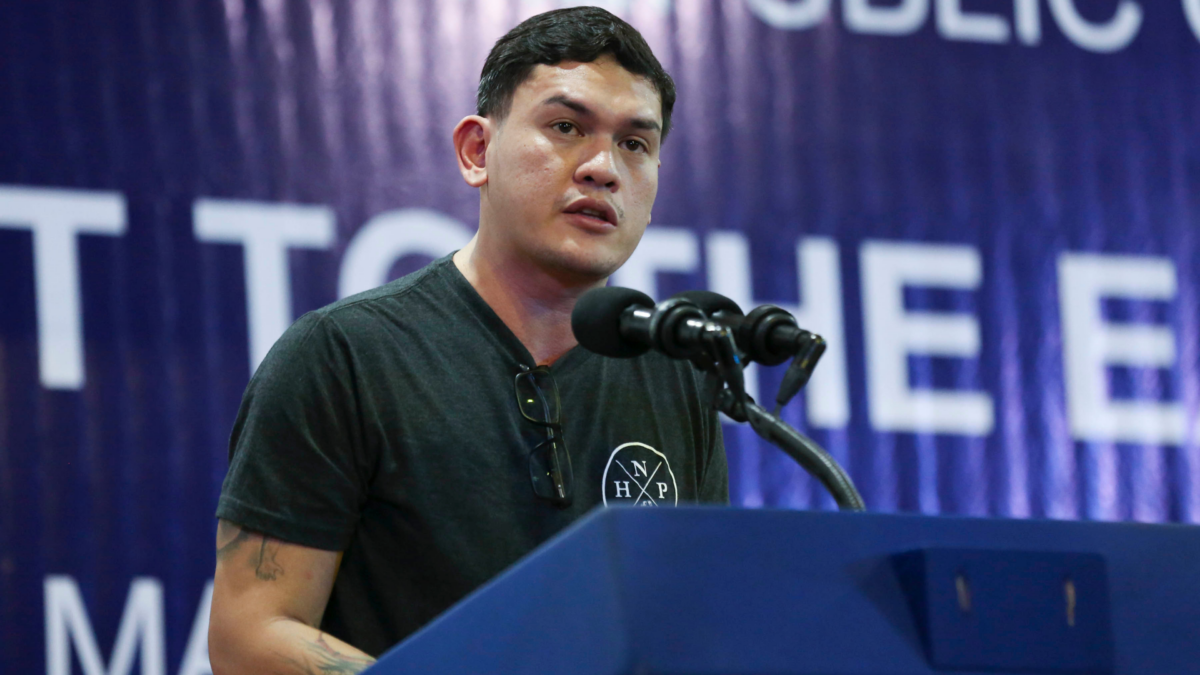MANILA, Philippines — The recent revival of the drug war in Davao City and the deaths that followed as reported by the police may be used to convince the International Criminal Court (ICC) to speed up its investigation of former President Rodrigo Duterte, a lawyer said on Sunday.
Neri Colmenares, one of the counsels for victims of Duterte’s drug war, said that a supplemental motion may be filed with the ICC detailing how the killings are still happening through the renewed antidrug campaign in Davao City. He added that he would discuss the move with his clients soon.
READ: Reported deaths alarm CHR after drug war revived in Davao City
READ: CHR launches probe on deaths in Davao City’s ‘restarted’ drug war
Drug war revived
The former President’s youngest son, Davao City Mayor Sebastian “Baste” Duterte, announced last week that he was reviving the war against illegal drugs after learning that more people were getting involved in the illegal trade.
His father launched a similar campaign during his presidency and as mayor of the same city, leading to him being investigated by the ICC for alleged crimes against humanity.
The ICC investigation covers the period between Nov. 1, 2011—when the Philippines ratified the Rome Statute that created the ICC and during the older Duterte’s term as Davao City mayor—and March 16, 2019, a day before the country’s withdrawal from the ICC, as ordered by the former President, took effect.
The bloody antidrug campaign during his presidency left at least 6,000 people dead, according to official government tallies.
However, human rights groups and advocates claim the number may reach 20,000.
No longer applicable
Arturo Lascañas, one of the witnesses in the case filed against the former President before the ICC, said in his affidavit that Oplan Tokhang, the “knock and plead” campaign against drugs carried out during the Duterte administration, was a brainchild of his daughter, then Davao City Mayor Sara Duterte.
The retired police officer and confessed member of the notorious Davao Death Squad said that Sara, now the country’s vice president, had “invented” Tokhang with senator and former Philippine National Police chief Ronald dela Rosa, then head of the Davao City police, as a way to downgrade drug killings to mere kidnapping cases when the slain drug suspects inevitably went missing.
Lascañas’ claims, however, were denied by Sara.
“Can it (younger Duterte’s declaration of the revived drug war) be included in the ICC case? The answer is no because the jurisdiction in general is no longer applicable because we already withdrew [from the Rome Statute],” Colmenares told the Inquirer in a phone interview.
“Can it be raised with the ICC? Yes, it can be raised with the ICC by the victims if only to tell the court to speed up their investigation because the killings continue,” he added.
Drug war basis
According to Colmenares, the revived drug war can be used on the basis of “two particular grounds.”
The first would be to file a supplemental motion with the ICC, asking it to hasten its investigation considering how “pressing” the matter was and “as more victims pile up.”
As for the second ground, Colmenares said that should the ICC terminate its investigation and issue a favorable decision, the redeclared drug war could also be used by the victims to ask that an arrest warrant be issued against the perpetrators.
“A warrant of arrest is premised on three grounds, one of which is that the crimes continue to be perpetrated,” he explained. The two other grounds, he added, were the possibility of the respondent destroying evidence and not appearing in court for proceedings.
‘Failed campaign’
At the same time, Colmenares joined critics of the younger Duterte’s renewed drug war and asked him to end it, saying the campaign would likely target only ordinary Filipinos and not the “big fish” or big-time drug lords.
The deaths following the mayor’s declaration were “not something to be proud of but … something to be ashamed of,” he said.
“It only means that their drug war has failed miserably. After six years in office of President Duterte and 22 years as Davao City mayor, there are still drugs in Davao? Then you should be embarrassed about it, so that’s the message for Mayor Baste,” Colmenares added.
“Impunity is when people commit crimes and get away with it and the worst form of impunity is what is happening in our country today: it is people committing crimes because they know they can get away with it,” he said.
But should the former President be arrested, convicted, and imprisoned by the ICC, it may “deter” local officials “from continuing their brutal practices,” according to Colmenares.
“The higher the position, the more lessons learned. So if the chief executive is detained, then other executives would also begin to think twice before doing what he did,” he said.
On March 26, the Commission on Human Rights (CHR) office in Davao region said that it had initiated an investigation into the five deaths that reportedly happened after the drug war was “restarted” in Davao City.
The CHR also expressed grave concern over Mayor Duterte’s declaration that he would resume the antidrug campaign, saying that even arrested criminals have a fundamental right to life.
